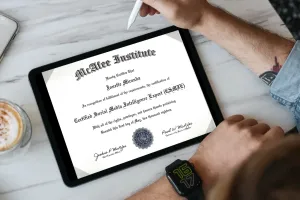Why Investigation Courses Matter for Your Career
Investigation courses are specialized programs that teach the skills needed for careers in public and private investigations, law enforcement, corporate security, and intelligence analysis. These courses range from short online certifications (50 hours) to full college diplomas (2 years) and cover critical skills like surveillance, interviewing, evidence handling, legal frameworks, and modern techniques like open-source intelligence (OSINT).
Quick Answer: Types of Investigation Courses Available
- Online Certification Courses - 50-hour programs for provincial licensing (e.g., Ontario Private Investigator)
- College Diplomas - 2-year programs at institutions like Sheridan, Seneca, and Humber
- Graduate Certificates - 8-month advanced programs for career specialists (Durham, Seneca)
- Government Training - Specialized law enforcement courses (RCMP Canadian Police College, FLETC)
- Professional Certifications - Board certifications in fraud examination, criminal investigation, OSINT, and intelligence analysis
Whether starting from scratch or advancing an existing career, the right investigation courses provide the credentials, skills, and credibility that employers demand. The field is growing rapidly, with skilled investigators needed to tackle everything from corporate fraud and cybercrime to human trafficking. However, the landscape of training options—college programs, online certifications, and government academies—can be confusing.
This guide cuts through the noise. We'll explore key skills, compare training formats, outline admission requirements, and clarify career paths. You'll learn how to obtain professional licenses and designations that lift your credibility and open doors to specialized roles.
I'm Joshua McAfee, and I've spent decades building investigative programs for organizations like Amazon and training thousands of professionals through government-recognized courses. My mission is to help you choose the training path that delivers real career advancement—not just a certificate, but the skills and recognition that matter.

Building Your Investigator's Toolkit: Key Skills You'll Learn
Effective investigation courses build your toolkit with both core competencies and the specialized skills needed in today's complex landscape. The best training focuses on practical application, teaching you to gather information, manage crime scenes, conduct interviews, and write reports that hold up in court.

You'll master surveillance techniques that require patience and attention to detail, always operating within legal and ethical boundaries. A single mistake in evidence collection and handling can destroy a case, so quality courses drill this process through real-world scenarios. Modern investigators must also understand the legal and ethical principles that govern their work to avoid serious legal trouble.
One of the most powerful tools today is Open-Source Intelligence (OSINT), which involves gathering information from publicly available sources. Our guide Understanding OSINT: A Comprehensive Guide breaks down how professionals use these techniques. Additionally, using AI in investigations is becoming standard practice for analyzing massive datasets and identifying patterns. Learn more about How AI Is Transforming the Future of Investigations and how to leverage these tools.
Foundational Investigative Techniques
Every investigator must master the basics. These include:
- Information Gathering: Identifying reliable sources, verifying information, and spotting red flags.
- Scene Management: Securing the area, documenting everything, and preserving evidence.
- Basic Surveillance: The art of observing people and locations without being noticed.
- Note-Taking: Creating precise, detailed, and defensible records of observations and timelines.
- Chain of Custody: Protecting the integrity of evidence from collection to court presentation.
- Legal Frameworks: Understanding criminal and civil law and the legal limits of investigations.
Want to hit the ground running? Check out these 5 Incredible OSINT Techniques to Supercharge Your Investigations in 2025 for immediately actionable skills.
Specialized Skills for Modern Investigators
Specialized training opens doors to higher-paying roles. Key areas include:
- Digital Forensics: Learning to identify, preserve, and analyze digital evidence from an investigative perspective.
- Financial Fraud Detection: Spotting red flags in financial records and following money trails.
- Cybercrime Investigation: Focusing on the intelligence and evidence collection side of online crimes.
- Human Trafficking Investigation: Gaining skills in victim identification, trauma-informed interviewing, and evidence collection in sensitive cases. The Certified Human Trafficking Investigator (CHTI) program prepares professionals for this critical field.
- Social Media Intelligence: Ethically gathering and analyzing information from social media platforms. The Certified Social Media Intelligence Expert (CSMIE) certification teaches these valuable skills.
- Crisis Intervention: Managing volatile situations, de-escalating conflicts, and communicating effectively under pressure.
Navigating the Landscape: A Guide to Investigation Courses
The journey to becoming an investigator isn't one-size-fits-all. Canada offers robust options, from public institutions with structured diploma programs to flexible private providers offering targeted certifications. Understanding these pathways is crucial, as some prepare you for broad law enforcement careers while others specialize in niche areas like fraud or OSINT. Let's break down the formats to help you choose.

Public Sector Training: College & Government Programs
Canadian colleges and government agencies deliver structured, comprehensive training, particularly for those pursuing careers in law enforcement and public safety. These programs typically combine classroom theory with hands-on field placements.
Ontario colleges like Sheridan, Seneca, Durham, and Humber offer well-regarded programs. These include two-year 'Investigation – Public and Private' diplomas and eight-month 'Advanced Investigations & Enforcement' graduate certificates. Coursework covers forensic techniques, surveillance, and resource protection. Many programs include integrated field placements and offer eligibility for a provincial Private Investigator Licence after the first semester, providing a direct path to professional practice.
Government-led training is more specialized. The Canadian Police College (RCMP) delivers essential investigative training for police and law enforcement personnel, covering everything from crime scene to courtroom. Their courses are continuously updated to reflect current policing challenges. South of the border, the Federal Law enforcement Training Centers (FLETC) provides comprehensive, interagency training for U.S. criminal investigators, holding FLETA accreditation to ensure high standards.
Private Sector Training: Online Certifications & Specialized Courses
Private training providers offer flexibility and specialization, ideal for those studying around a full-time job or seeking to enter the field quickly.
To get a private investigator license in Ontario, you must complete a 50-hour online course that meets Ministry requirements. These courses cover the Private Security and Investigative Services Act, 2005 (PSISA), research, surveillance, and evidence handling. The 'Ontario Private Investigator' online course is designed to exceed syllabus requirements and prepare you for the provincial exam, offering the fastest route to licensure.
Global certification bodies provide another layer of training. For example, the Association of Certified Fraud Examiners (ACFE) offers training for fraud examination, which is valuable for continuous professional development.
At McAfee Institute, we deliver government-recognized professional certification programs accessible from anywhere. Our investigation courses offer lifetime access, live instructor support, and free updates—no annual renewals or hidden fees. We focus on high-demand domains like open-source intelligence, criminal investigations, and fraud examination. Our Certified Professional Criminal Investigator (CPCI) program, for instance, is designed for professionals seeking expertise in criminal investigation methodology and case management. You can Explore Board Certifications to find the program that matches your career goals.
Choosing Your Path: College Programs vs. Professional Certifications
Choosing the right investigation courses means deciding between the traditional academic route of a college program and the flexible, specialized path of professional certifications. The best choice depends on your career stage, goals, and learning style.
College diplomas and graduate certificates (8 months to 2 years) offer a structured, comprehensive academic foundation, often including field placements. This path is great for career starters who thrive in a classroom environment. However, it requires a significant time and financial commitment. Domestic tuition can be $3,500 to $5,000+ per year, with international student fees of $15,000 or more annually.
Professional certifications, like those from McAfee Institute, are designed for flexibility and niche expertise. These self-paced programs range from 50-hour licensing courses to 200+ hour board certifications. They are ideal for working professionals who need to specialize without leaving their jobs. Costs are generally lower, from $200 to $500 for basic licensing courses to $1,000 to $5,000+ for advanced certifications, often with scholarship pricing available.
- Duration: College programs require months or years; certifications are self-paced and can be completed in weeks or months.
- Admission: Colleges typically require a high school diploma (OSSD) or a prior degree, though some accept relevant work experience. Certifications are more accessible, often blending education and experience.
- Format: Colleges offer in-person, hybrid, and online formats. Certifications are predominantly online and self-study, with support like live instructors and forums.
Who is each path best for? College programs are ideal for career starters seeking a broad academic base. Professional certifications are perfect for career changers and existing professionals who need to specialize flexibly.
Admission and Post-Admission Requirements
Getting into an investigation program involves meeting specific criteria. For admission to a diploma program, you'll typically need an Ontario Secondary School Diploma (OSSD) or equivalent. Graduate certificates usually require a prior college diploma or university degree. Some programs, like Durham College's, may consider at least two years of relevant work experience as an alternative.
English proficiency is always required, especially for international students.
After admission, you'll likely need to complete several post-admission requirements to ensure you meet the ethical and professional demands of the field. These typically include:
- A criminal record check, often with a Vulnerable Sector Screening.
- A current First Aid and CPR (Level C) certificate.
- An entry immunization form completed by a healthcare provider.
From Classroom to Career: Job Opportunities for Graduates
Completing your investigation courses opens doors to a dynamic career with new challenges across public and private sectors. The skills you gain are in demand for a diverse range of roles, from corporate offices to fieldwork.

Your training equips you for roles you may not have considered, each applying core competencies in unique ways.
Popular Career Paths for Investigation Graduates
- Private Investigator: Work for individuals, law firms, or businesses on diverse cases like background checks, surveillance, and fraud investigations.
- Corporate Investigator: Protect business interests by uncovering internal misconduct, fraud, theft, and policy violations.
- Loss Prevention Specialist: Reduce shrinkage and theft in retail and other business environments through surveillance, data analysis, and staff training.
- Fraud Examiner: Specialize in detecting, preventing, and investigating financial scams and complex fraud schemes.
- Bylaw Enforcement Officer: Serve communities by enforcing municipal bylaws related to property, animal control, and public safety.
- Insurance Investigator: Tackle suspicious claims by interviewing claimants, reviewing records, and conducting surveillance.
- Intelligence Analyst: Gather and analyze information to provide actionable intelligence for government, law enforcement, or corporate security. As our guide on 10 Reasons Why OSINT Certifications Are Essential for Your Career explains, this field is growing exponentially.
- Law Enforcement Roles: Pursue positions in federal, provincial, or municipal policing, corrections, and border services.
Obtaining Licenses and Professional Designations
In the investigation field, specific licenses and professional designations are crucial for signaling your expertise.
- Provincial Private Investigator Licenses: Mandatory in Canada to practice as a PI. The 50-hour online program prepares you for the provincial exam in Ontario.
- Security Guard Licenses: Often a dual qualification with a PI license, broadening employment options in both investigative and security roles.
- Certified Protection Professional (CPP): A globally recognized designation from ASIS International for security management professionals.
- Certified Fraud Examiner (CFE): A credential from the ACFE signifying expertise in fraud prevention, detection, and deterrence.
- Board Certifications: Represent the pinnacle of professional recognition in specialized fields. The Certified Professional Criminal Investigator (CPCI) from McAfee Institute, for example, offers government-recognized credentials designed by real-world experts. Our board certifications provide lifetime access and free updates to keep your skills current.
Continuous professional education is vital in this dynamic field. A commitment to ongoing learning shows employers you are serious about staying at the top of your game.
Frequently Asked Questions about Investigation Training
Starting a new career in investigations brings up many questions. Here are clear, concise answers to the most common ones about investigation courses.
How long does it take to complete an investigation course?
The duration depends entirely on the path you choose:
- 50-hour online licensing courses can be completed in a few weeks at your own pace.
- Graduate certificate programs typically run for eight months (two academic semesters).
- Two-year college diploma programs offer the most comprehensive training.
- Self-paced professional certifications allow you to learn on your own schedule, whether it takes a few months or longer.
What is the cost of investigation courses in Canada?
Costs vary significantly based on the type of program:
- Online licensing courses for a PI license are the most affordable, typically costing $200 to $500 CAD.
- College diploma programs for domestic students usually run $3,500 to $5,000 CAD per year, plus books and supplies.
- Graduate certificate programs cost around $4,000 CAD or more for domestic students.
- International student tuition is substantially higher, often $15,000 CAD or more per year.
- Professional certifications have varied pricing. McAfee Institute, for example, offers board certifications with scholarship pricing from $49.97 to $997.00. These are a one-time investment with lifetime access and no renewal fees.
Can I take investigation courses online?
Yes, online learning has made the investigation field more accessible than ever. There are several formats available:
- Fully online programs are common for provincial licensing and professional certifications, offering maximum flexibility to study from anywhere.
- Hybrid formats, offered by colleges like Seneca and Durham, blend online coursework with essential in-person training sessions.
- Self-paced certifications, like those from McAfee Institute, are designed for working professionals, providing lifetime access to materials, instructor support, and free updates, all on your own schedule.
The bottom line is that whether you prefer a traditional classroom, a blended approach, or fully remote learning, there is an investigation course format that fits your life.
Conclusion
The world of investigation courses is rich with options, from comprehensive college diplomas to flexible online certifications. The most important step is to choose a training path that aligns with your career goals. If you're starting from scratch, a college program provides a broad foundation. If you're a working professional looking to specialize in fraud, OSINT, or human trafficking, a targeted professional certification can get you there faster and more affordably.
Successful investigators are defined by their commitment to continuous learning and ethical practice. The field evolves constantly with new technologies, laws, and threats. That's why programs offering lifetime access and free updates are so valuable—they are a career-long resource, not just a one-time course.
The demand for skilled investigators is at an all-time high. Public and private sector organizations are actively seeking professionals with recognized credentials and real-world skills. Now is the time to establish yourself as a credible expert in this competitive field.
Empower your career with the right credentials. For those seeking globally recognized, expert-led training with lifetime access and government accreditation, we invite you to explore the board certifications offered by the McAfee Institute. Our programs are designed by real-world law enforcement and intelligence experts to give you the skills, recognition, and confidence to advance your career in intelligence, investigations, and threat analysis.
The path from rookie to respected investigator is challenging but deeply rewarding. With the right training, you're ready to answer the call.






Member discussion